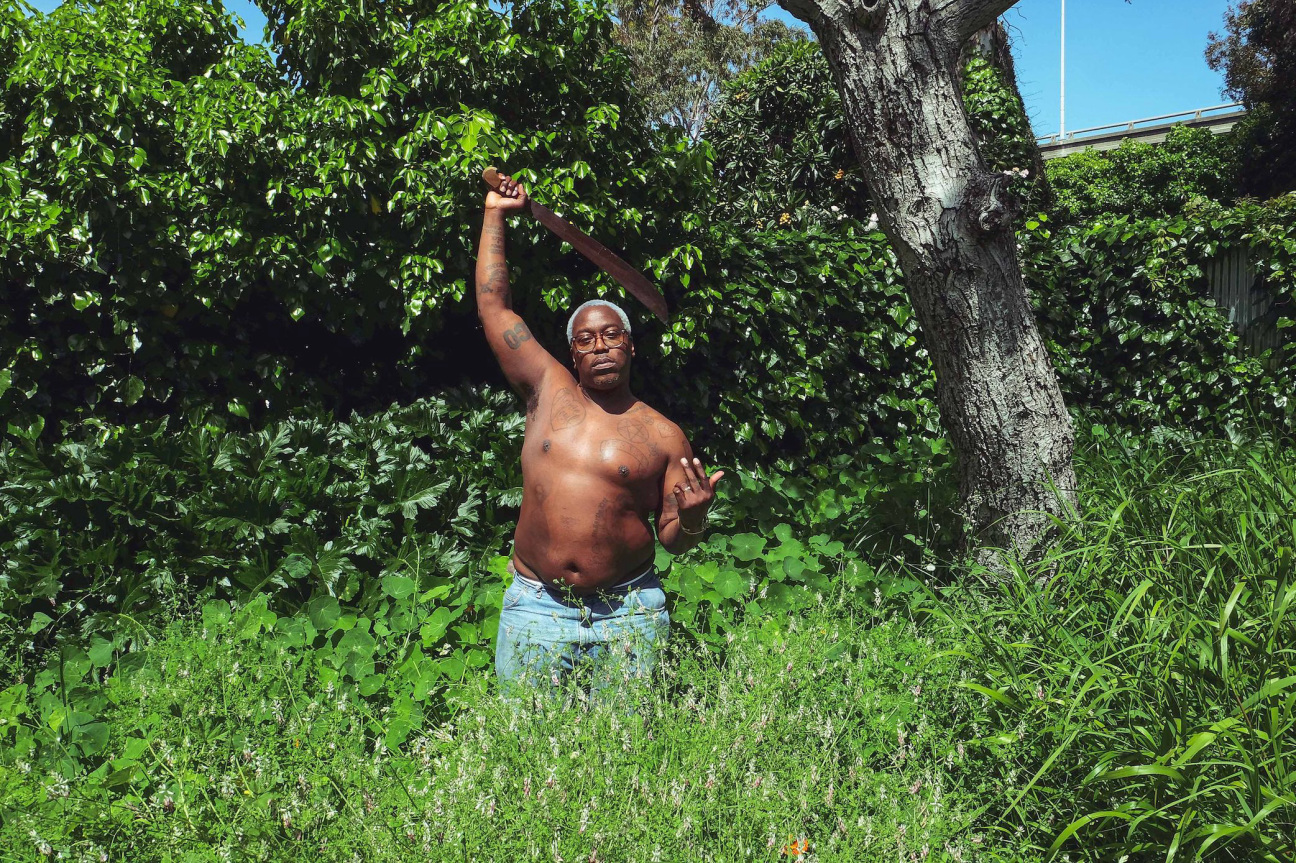
“It is a privilege to be able to experiment,” says Brontez Purnell. In all that he does, the Oakland-based punk provocateur is animated by a sense of play. Purnell moves promiscuously among the disciplines of filmmaking, dance, writing, music, and performance art (he also plays with the East Bay punk band Gravy Train!!!!).
Purnell’s work is exciting partly because he is not afraid to go there. His writing is filled with humor and longing, bursting with urgent commentary on queer social, sexual, and romantic life. Winner of the 2018 Whiting Award for Fiction and the 2022 Lambda Literary Award in Gay Fiction, he is the author of The Cruising Diaries, 2014; Johnny Would You Love Me If My Dick Were Bigger, 2015; Since I Laid My Burden Down, 2017; and 100 Boyfriends, 2021.
Today, Purnell drops No Jack Swing, the latest of his forays into the radically new. The breezy seven-track LP is the inaugural release from Papi Juice Records, a new arm of the long-running New York dance party and art collective, in collaboration with DJ Josh Cheon’s Dark Entries Records, a bellwether in preserving the queer underground sounds of San Francisco. “Josh [Cheon] reissues lost records from Patrick Cowley’s estate, and Patrick Cowley worked with Sylvester, so this collaboration is kind of historic,” says Purnell.
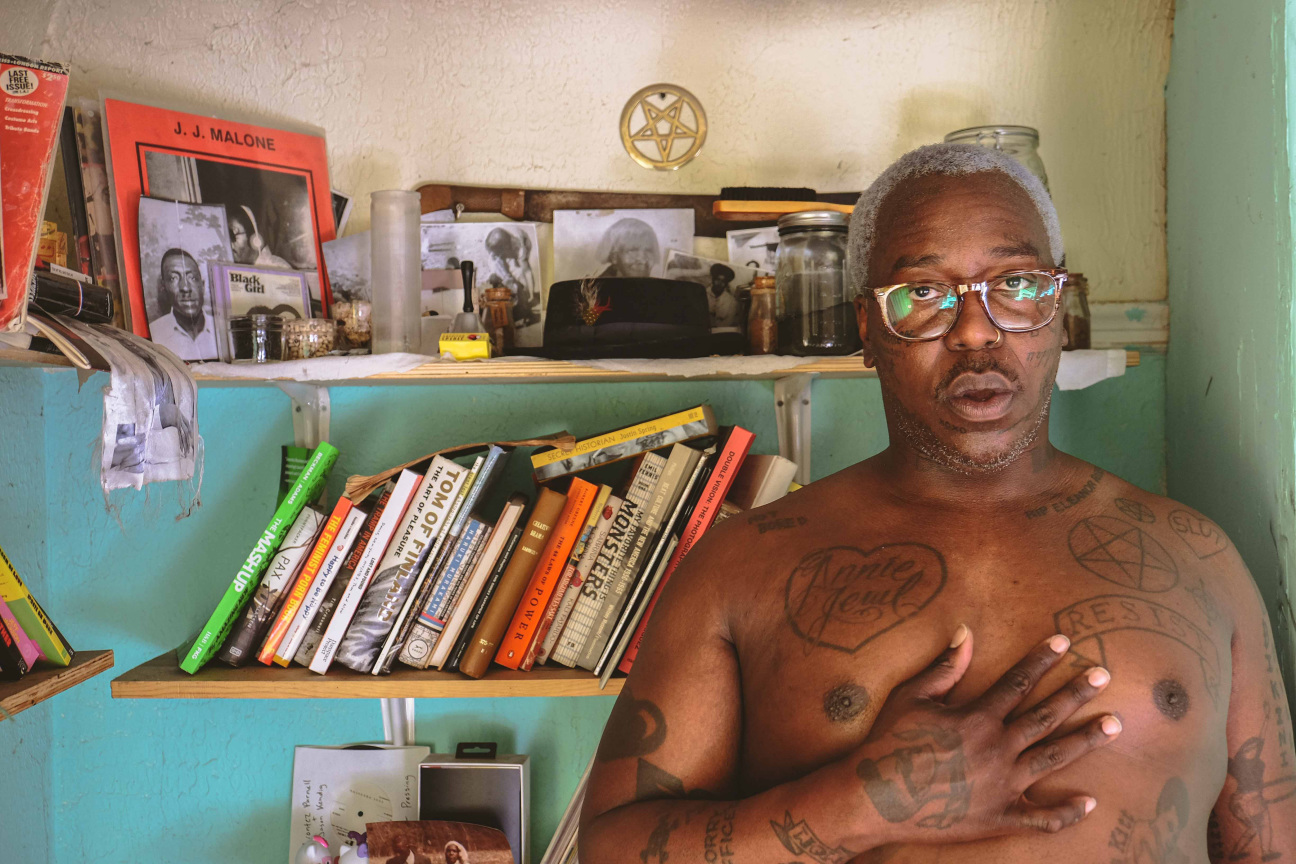
The split release is certainly momentous, because it situates the artist at the heart of the most exciting synergy in contemporary queer music history, a line that connects Patrick Cowley and Sylvester to Papi Juice, which has long centered queer people of color in nightlife and in music. “Papi Juice really is just a circuit party for queer POC. If we had that in our 20s, we wouldn’t have been this fucked-up,” muses Purnell. “We were always in these gay spaces with these crazy older white dudes, and that wreaked havoc on our self-esteem.”
With an iconic trio of production credits from the elusive composer and producer Nightfeelings, Purnell himself, and Telfar Studios—yes, that Telfar—No Jack Swing is bright and ecstatic, composed of layered phone recordings. “All the guitar parts, the saxophone, cellos, and violins were recorded as voice memos,” says Purnell. The artist comes from a long line of vocalists and blues musicians, and the record features appearances from Cody Critcheloe of SSION and Andrea Genevieve of Purple Rhinestone Eagle. But the record’s most powerful cameo comes from the New Zion Missionary Baptist Church choir of Belle Mina, Alabama, which Purnell grew up singing in. “All them girls be in church singing,” says Purnell, recalling his childhood spent in choirs with his relatives. “So I was like, 'Yo, I want my cousins singing on these tracks.'”
The main thing Purnell wants you to know about No Jack Swing? "No Jack Swing is a new wave record. No Jack Swing is a mutant R&B record. No Jack Swing is a punk record,” he says, animated. “This is the electroclash record I should have made in 2004. But you know what? Twenty years late is better than never.” Here, Purnell talks with Steve Lacy—another artist known for his genre-blurring experimentalism—about live music, choir practice, and the icons that preceded them.
—madison moore
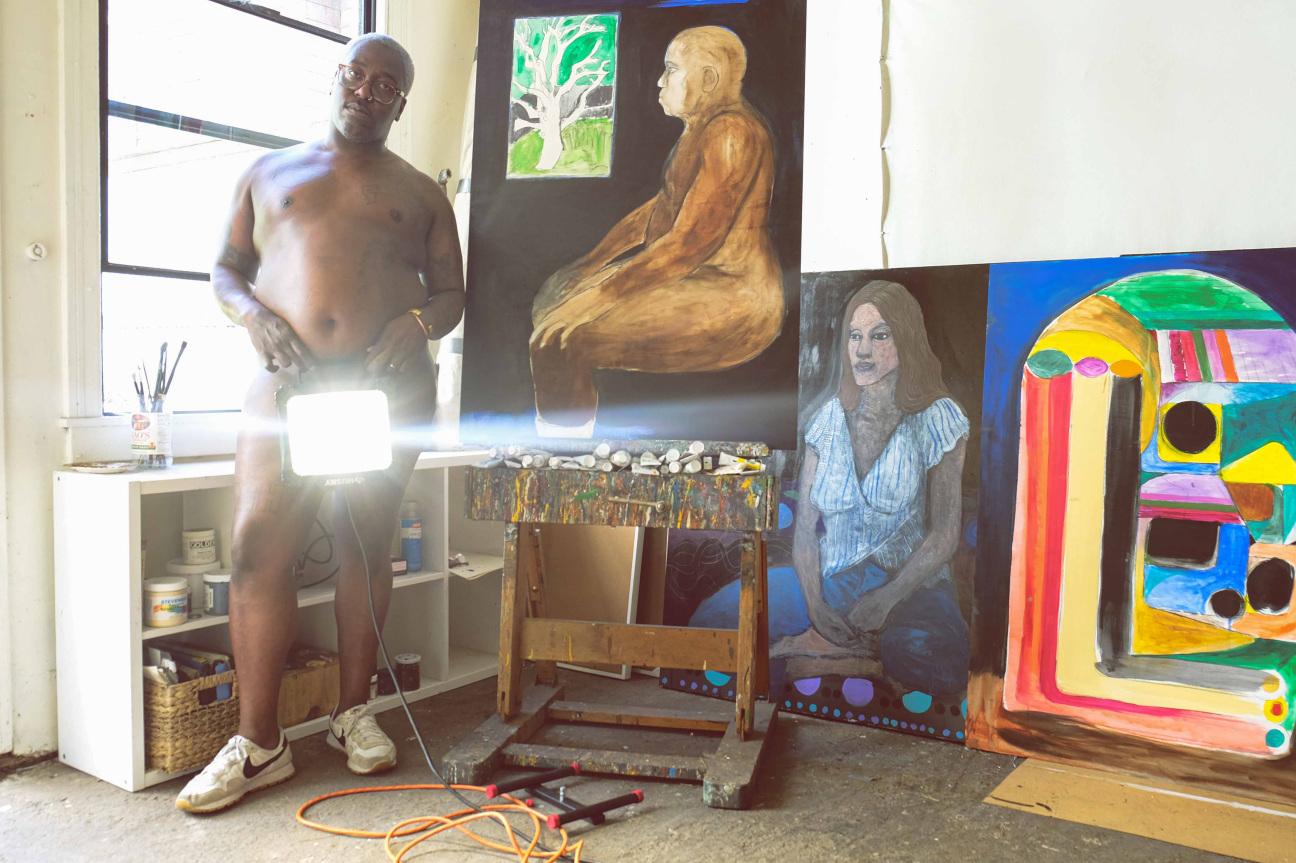
Steve Lacy: What inspired you to make an electronic album? Who are some of your inspirations when it comes to putting vocals on electronic beats?
Brontez Purnell: I’m a 40-year-old gay, Black man who plays pop punk. I feel like I did something wrong—like, aren’t I supposed to be a house DJ or something? Either way, during quarantine I wanted to make a “dub” record—like old-school Jamaican style. I had friends in places like Oakland, Paris, Los Angeles, and New York record many of the parts on their phones, in their bedrooms. I layered it all together but then, I dunno, the early effects felt a little too DIY and scrappy, and I wanted to go FUCKING MAXIMAL. No Jack Swing in my head was supposed to be like Kid Cudi meets Meredith Monk, but somewhere along the way I ditched the pretensions and allowed myself to just be a pretty Black boy making a pop record—and like, why the fuck shouldn’t I?
Lacy: I love your album title. It gives me a familiar feeling. How do you come up with titles? Do you have them in mind prior to making your records?
Purnell: TITLES ALWAYS COME FIRST. I’m a conceptual artist before I’m anything else, even when I make music. Improv and jamming are for jazz musicians and fucking hippies, and I’m neither.
Lacy: Who are some of your inspirations when it comes to putting vocals on electronic beats?
Purnell: KeiyaA, Pamela Z, Frank Ocean meets Frank O’Hara, the Slits, ESG, Brijean Brijean Brijean, Le Tigre, the Beastie Boys’s Paul’s Boutique…
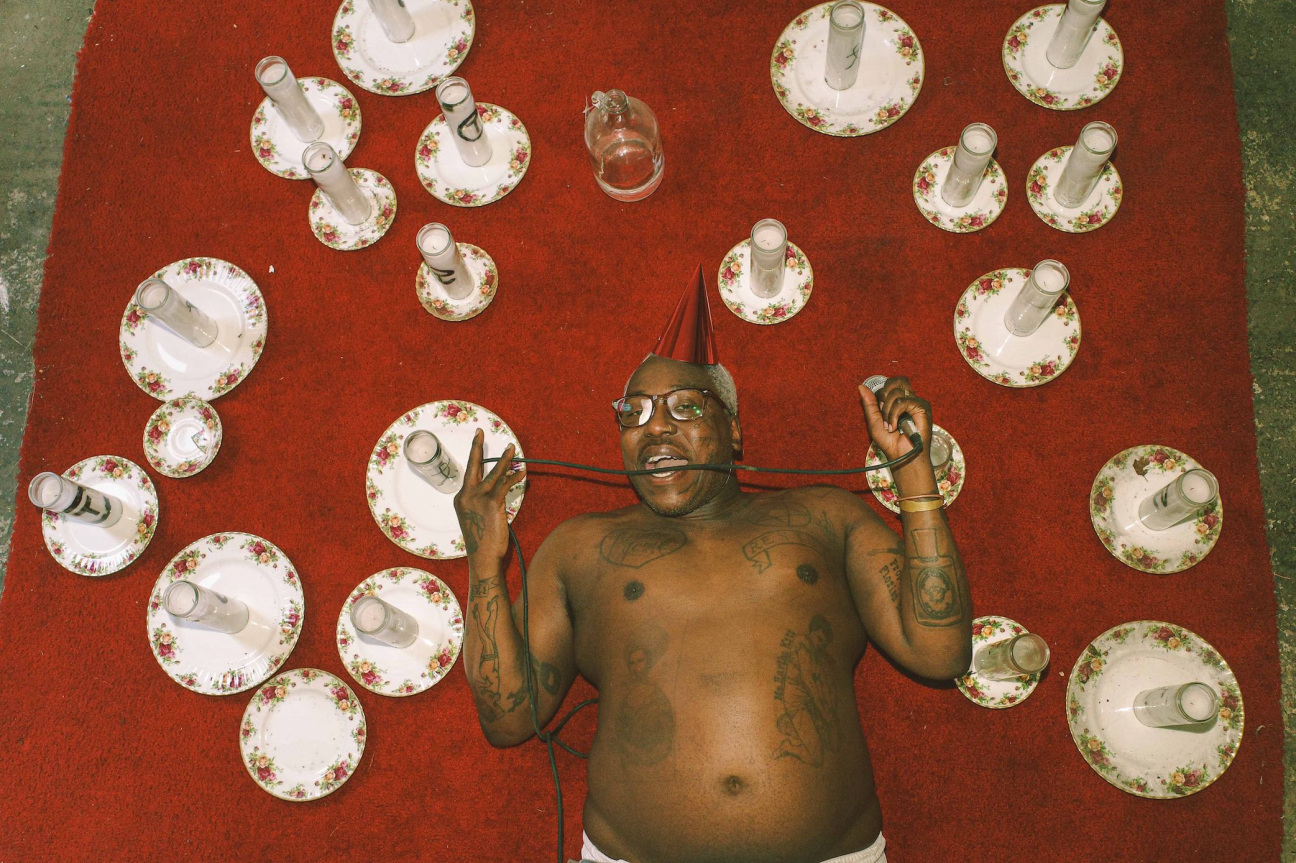
Lacy: I’m a huge fan of your books. Jeremy O. Harris sent me Johnny Would You Love Me If My Dick Were Bigger, and I’ve been obsessed with you ever since. I’ve also read 100 Boyfriends, which I loved. I’d imagine writing a book and writing a song are two different processes for you, but I’m curious—what are some parallels between the two, if any?
Purnell: I don’t know. I just know that when writing songs, you can actually get away with being a super cheesy poet in a way that you can’t really get away when you’re, like, a printed poet. Like, if you took every Sam Smith lyric, put it in a book, and marketed it as STRICT literature, the poetry community would want BLOOD. I’m not dissing Sam Smith of course—I love her or whatever—I’m saying that the thing that sells their words is their voice and the character that they embody when singing about heartache, loss, or longing.
Poets have to make sure that they are putting something on the page that can animate the dead space in ANY reader’s head. But also, I think literature, and the English language in general, is heavily gatekept by some pretty lame and stifling precepts. When you make songs you can slur sounds, force rhymes if you’re confident enough, and hell, you can even make words up. Soundscapes in general are just an entirely different universe from the written word. That said, I feel like I sometimes write really beautiful—even clever—shit that gets buried under melody and production. It’s weird to say, but sometimes in music, the writing and the sound are like two different babies fighting for their mom’s attention.
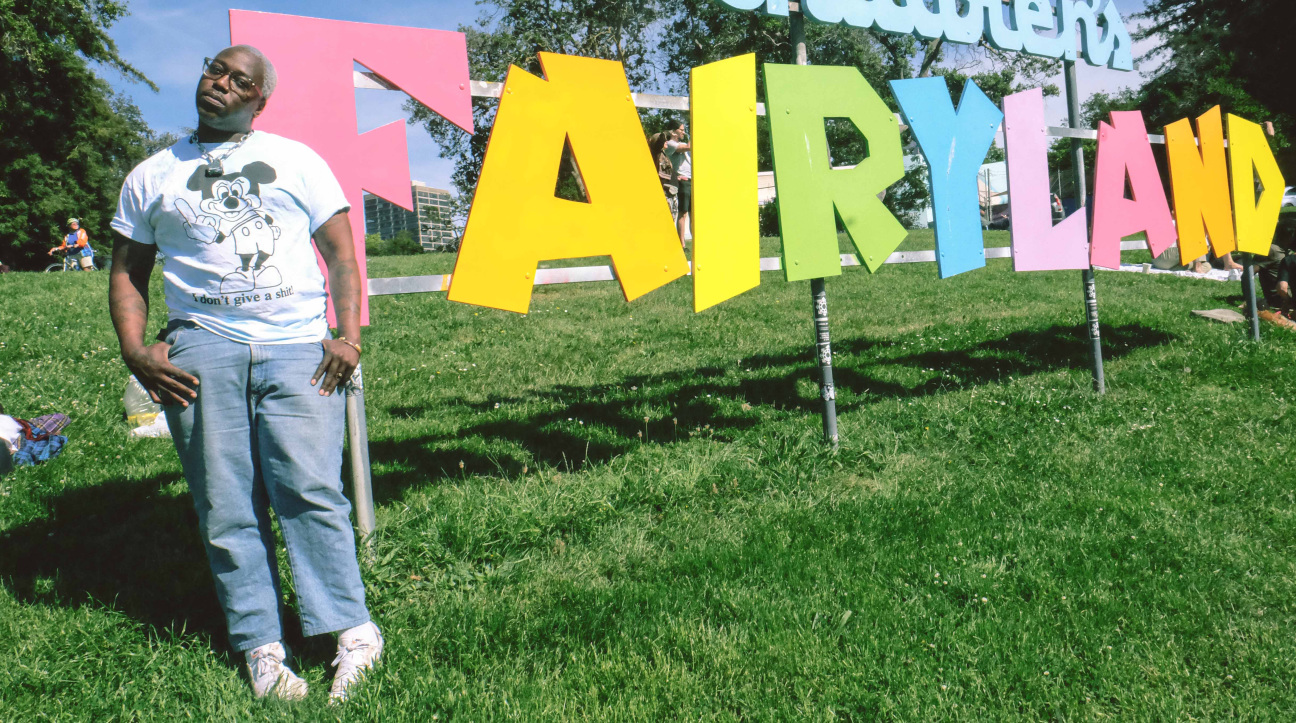
Lacy: I hate when people ask me this, but I’m gonna ask you anyways. Do you have a dream collaborator, not limited to music?
Purnell: TBH, working with Nightfeelings (who produced No Jack Swing) was one of my biggest dreams! I first kicked it with him over a decade ago. He was going to Oberlin [College and Conservatory] and studying sound and film I think, and he invited me to host the gay student union ball. This was, like, 2011. I thought Teengirl Fantasy, his project at the time, was so peculiar and avant-forward, and I really wanted to collab with him. SO I FUCKING DID. Another dream collaborator is whoever produced Lady Miss Kier’s, like, 30-year–long unreleased drum-and-bass record—I wanna make a drum-and-bass record with that person. And last but not least, JANET JACKSON.
Lacy: Are you a good texter or a bad texter?
Purnell: I tend to over-text. Someone will text me, like, “How was your day?” And I’ll be like, “OMG MY CHILDHOOD WAS SOOOOOO HARD, THERE WAS THIS ONE TIME…” I’m fucking GROSS.
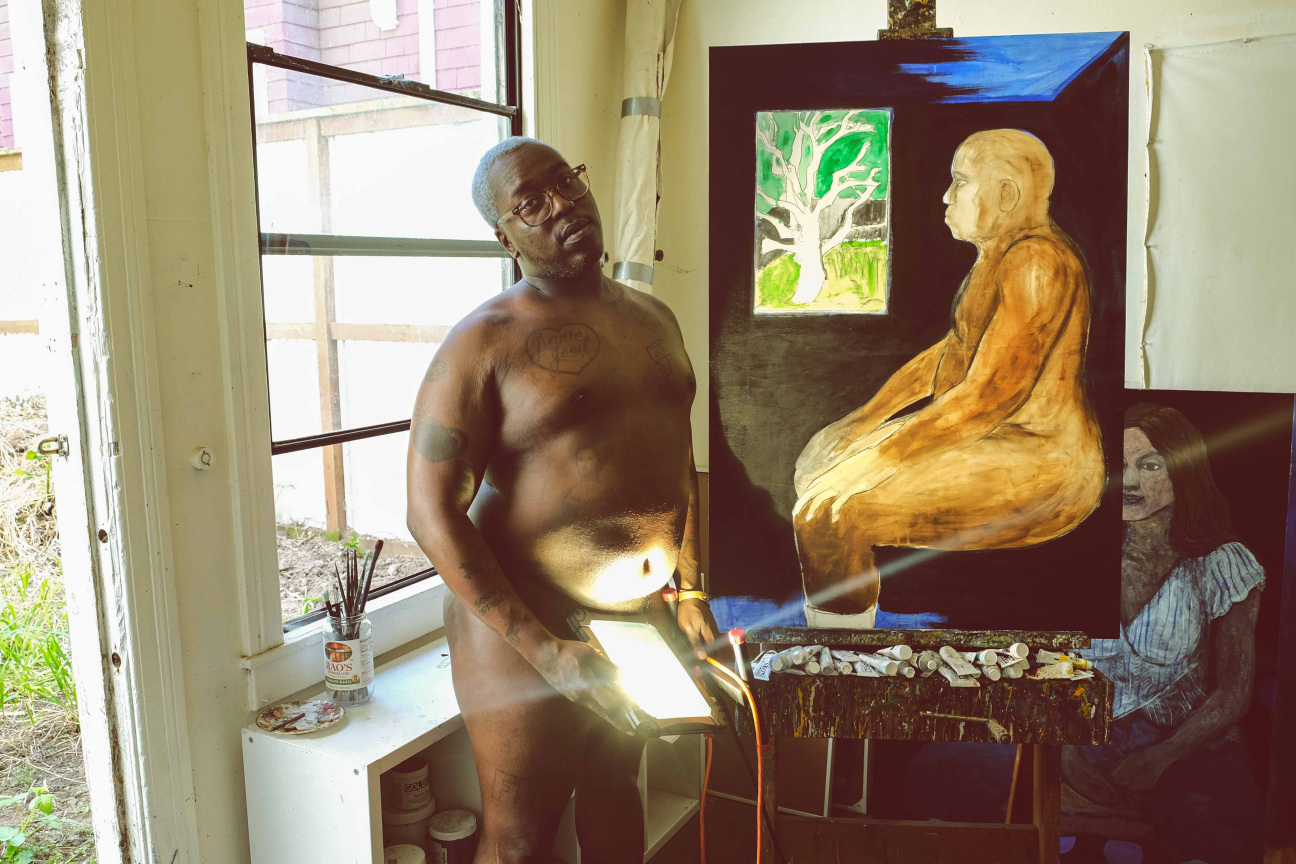
Lacy: You have your own flow, melody, and cadence. I hear you sing and automatically know it’s you based on that flow. What music did you grow up with that shaped your melodies? They’re so quirky and weird, but also so charming and soulful. I really love that.
Purnell: I grew up in a cotton field and singing in church—JUST LIKE TINA FUCKING TURNER. Belle Mina, Alabama, my hometown, is just three hours southeast of Nutbush, Tennessee, which is Tina’s hometown, but I digress. I started singing in church in the late ’80s, and we didn’t even have a microphone or PA. The song belonged to whoever could sing the loudest, not the prettiest. It’s such a FUCKED UP pecking order, but I think it influenced me spiritually.
I have spent a lifetime battling how I feel about my voice: the way it sounds and why it sounds the way it sounds. I was put in speech class when I was 5, which I now look back on and have [had] this dark epiphany that they did that ’cause I sounded like a faggot. I’ve never really stuttered or anything, but I do tend to draw out vowel sounds, which is maybe just a Southern thing in general. Either way, it took me A LONG TIME to love my fucked-up voice.
But I think in music, conformity of sound is ALWAYS the goal. Side note: When I was in art school at [University of California], Berkeley, I learned from this other sound artist, Xandra Ibarra, that before colonization, the vowel sound “A” was pronounced differently in every country. Then, the gatekeepers decided that it had to be one sound worldwide—think of how many beautiful sounds were destroyed in that balance.
I often think about this notion of AI taking over music—AI took over music over a decade ago with auto-tune! I don’t mind auto-tune, but I’m more interested when we critique it as a tool of conformity. Anyway, I like the word “quirky,” it’s a cute segue into saying that something sounds “non-conforming,” so thank you bb <3. That was a VERY LONG way to say, basically, that I’m a weirdo who doesn’t mind someone singing off-key as long as they are genuinely singing their heart out. I think that, sometimes, singing has to be ugly.
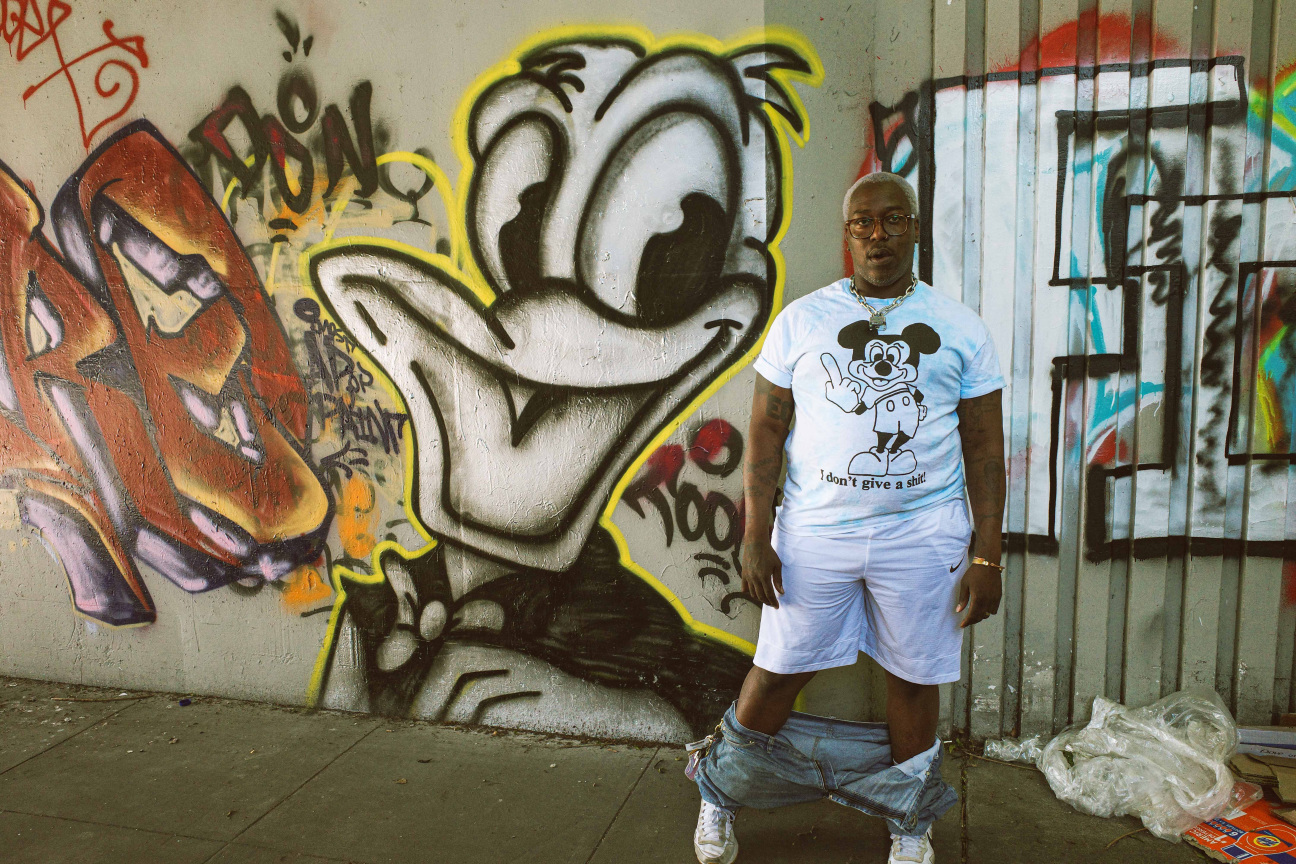
Lacy: Do you have a favorite movie genre?
Purnell: It’s called a choreo-movie. The best examples for me are the Yvonne Rainer films. They deal with poetry, image, movement, and text on screen, and jumble all these things up. Another word for this is “dislinear narrative.” I sometimes write for TV, and when I do that, I have to sit through 90 hours of people literally talking psychobabble—which, like, barf. The fact that I WATCH THEM make shit up in front of me, just to put five minutes’ worth of story on a screen, makes me wanna fucking kill somebody, so in my free time, I would rather watch non–plot-driven things—“dislinear narratives” OR stories on Instagram. I find watching 300 Instagram stories in a row INFINITELY more entertaining than 98 percent of the movies they put out these days.
Lacy: Do you remember the first physical record you ever got?
Purnell: I was, like, 16, and I was in Montgomery, Alabama. I had my dad buy me a record player, and I bought the B-52’s first album—I got “Dance This Mess Around” tattooed on my arm a short time later, when I was 19—and Blondie’s Parallel Lines simultaneously. It’s funny that I call myself a “punk,” whatever that even means anymore, but my first vinyl records were these new wave records. Long story short, that was a fun-ass summer. I guess I could say No Jack Swing is lightweight a “nu wave” record too? I dunno.
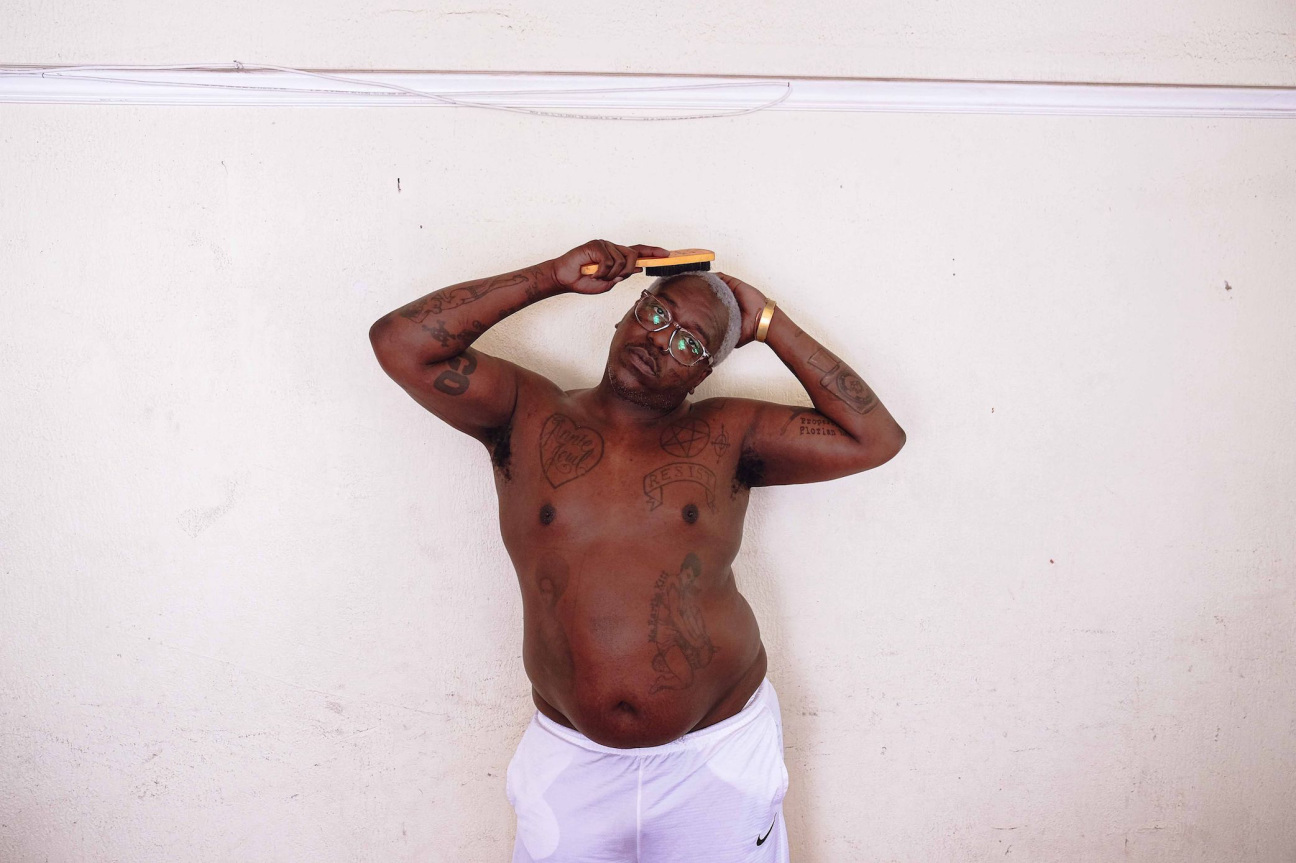
Lacy: What are your thoughts on music festivals?
Purnell: I hate crowds, and these days I’m always afraid that some gun-toting America-lover is going to shoot up the fuckin’ place—GIRL REAL TALK. Honestly, my favorite place to listen to music is an empty bar where I have room to twirl like a fucking princess. I like consuming music alone or with maybe 20 close people; call me crazy. I lived in punk warehouses for most of my adult life where we had shows, so there was always some band playing in my living room. Because I experienced so much music in this private way, I got kind of spoiled.
THAT SAID, I also practice witchcraft and believe that festivals and shit are super important to normal human functioning—it’s also a very epic way to experience music. Standing with 30,000 other people who are all on the same page mentally is its own drug, and I think it makes manifest something that’s in the ether. I can’t hate on it, but at the same time, the idea of standing in line for a porta potty at Coachella? EW! GIRL, NO!!!!!! To quote Chrissie Hynde of the Pretenders, “Not me baby, I’m too precious.”
Lacy: I stole this question from Chef Alisa [Reynolds] but it’s a good one: If you were to lose your sense of smell and taste forever, what would be your last meal?
Purnell: Duh. HUMAN FLESH! I’ve always been, like, curious.

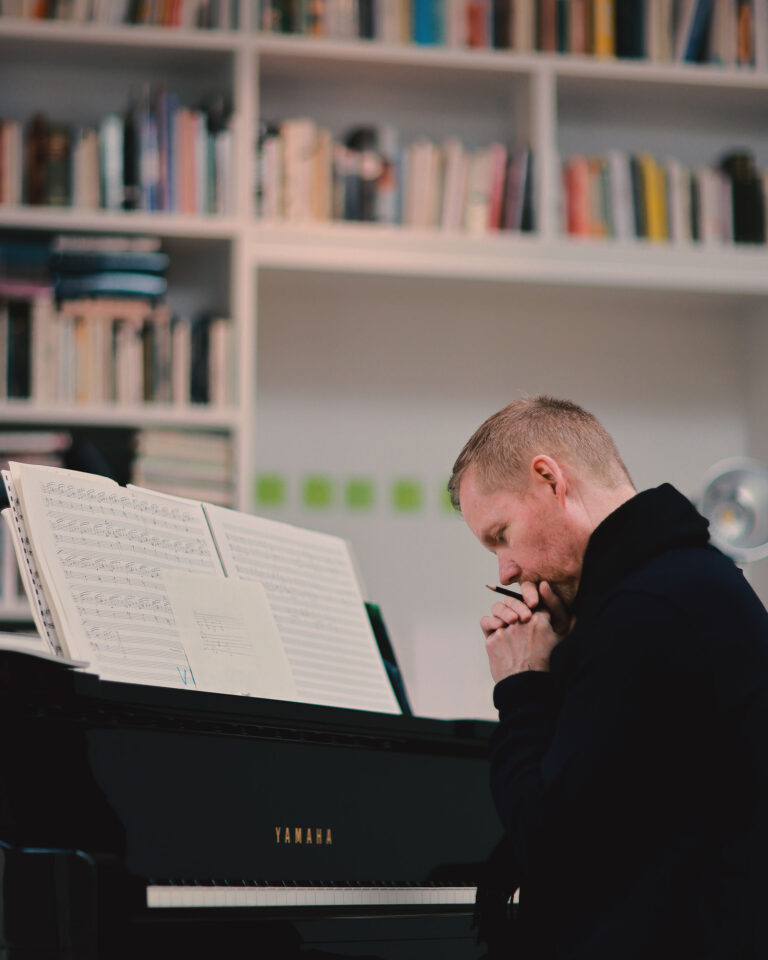
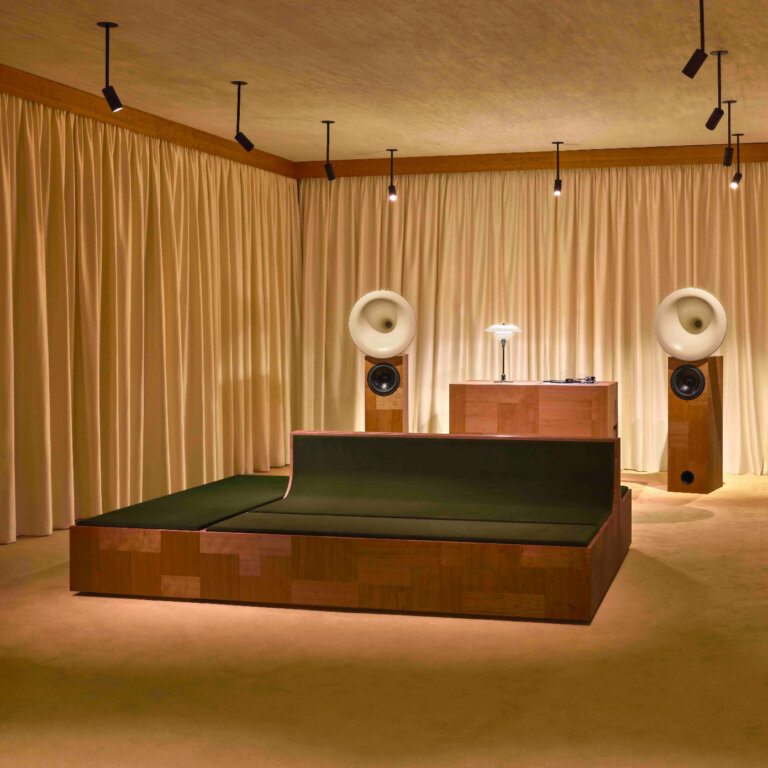
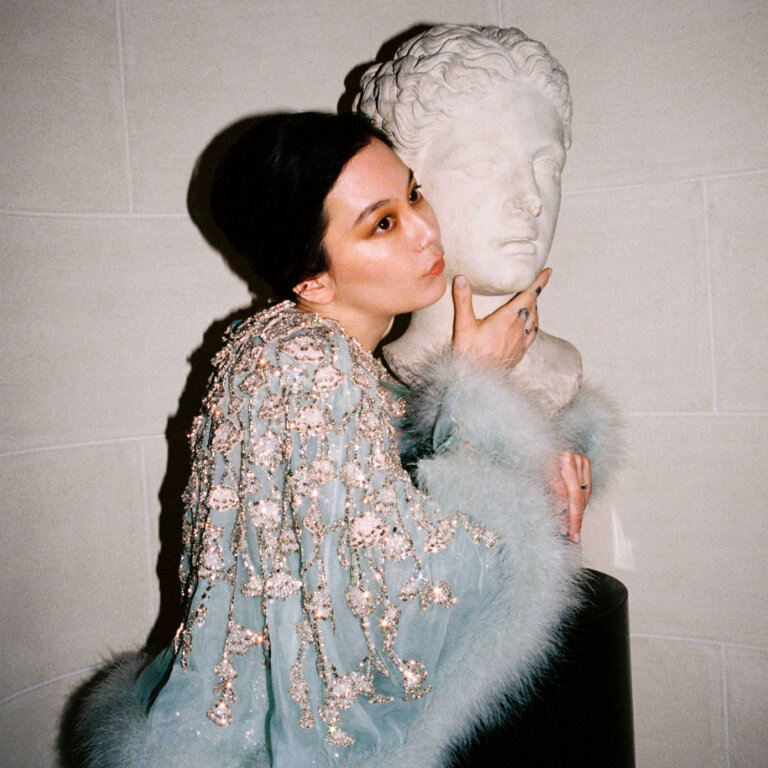
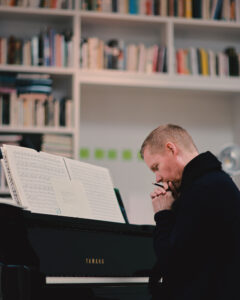





 in your life?
in your life?

